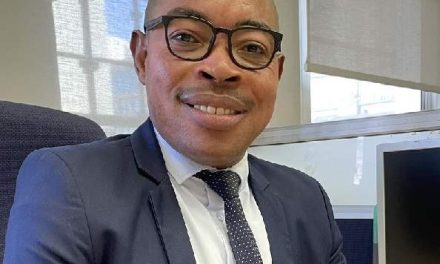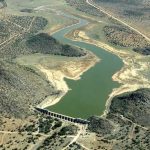
Namibia needs three international football stadiums: – Sports Commissioner Mwiya

By Adolf Kaure.
The chief administrator of the Namibia Sports Commission (NSC), Freddy Mwiya says that Namibia needs three international stadiums for football so that the country can benefit from all the economical spin-offs that come from playing home games.
Currently, the men’s national football team, the Brave Warriors, play its home matches in neighbouring South Africa as none of the country’s stadiums meet international standards.
Speaking during an interview at the recently held Sports Tourism Symposium under the theme “Smart facilities, connecting the community through sports” in Swakopmund, Mwiya said that having more than three stadiums could be beneficial, however it is more economically viable to have three.
“I am part and parcel of the colleagues who are working on National Development Plan 6 right now and we have identified the aspect of infrastructure as a challenge. We just need two to three in the country.”
“Once we have got one in stadium in the capital city, we need to have one in the northern part of Namibia where we have most of the population and we can also have one here at the coast – for me that can be economically viable. We also need to look at the population of the country.”
“We also must look at facilities meeting certain standards as you see in the provisions of the Sports Act. We must inspect the sports facilities to make sure that they reach national or international standards in terms of safety of the spectators and in terms of the athletes themselves.”
“There is a need for all sports facilities to meet all the standards because one of the great aspects is that the sports teams need to prepare at the right platform because they have to prepare at the same type of standard when they compete internationally,” said Mwiya.
Additionally, the chief administrator explained how the country benefits economically through international sports facilities.
“When you have international facilities in your country, it also boosts the economy because you can see what happens when you play most of your home matches especially when it comes to football, we play them away in South Africa.”
“The moment you have international facilities, you create employment, which are direct and indirect employment opportunities. Direct for the players and indirect for the service providers that provide some services for those kinds of games.”
“We as a country, we have those kinds of challenges where our stadiums don’t meet international standards, especially the outdoor facilities in particular the stadiums,” he said.
Mwiya further said that regional and constituent stadiums are also needed to make it convenient for athletes to train and compete in national and constituent competitions. “Apart from international stadiums, we need to have regional stadiums in every region that can be used for regional activities.”
“We have 121 constituencies in Namibia. There is a need for us in the constituencies to have something meant for that level because you cannot expect athletes in each constituency for them to go and train at a regional stadium.”
“They need to have a training facility, but their facility cannot be used for international competitions or for national competitions but for the consistency competitions.”
“We need to have international facilities, regional facilities and constituency facilities – at all those levels,” said the chief administrator.
Mwiya expressed his gratitude to private entities who have built indoor sports facilities, saying that these facilities have helped boost the country’s economy through tourism.
“I am so happy that we have got indoor sports facilities that met international standards. When we talk about facilities, we don’t only talk about government, we can also talk about private entities’ facilities because they are within the borders of the country.”
“A very good example is a facility like the MTC Dome. It is an international facility that we can use for international games, and we have seen what happens when people come to Swakopmund – a lot of sports tourism takes place.”
“We call upon the corporates and local authorities that whenever they do their master plans, let them ensure that they also have smart facilities,” he said.
Namibian legend and Orlando Pirates winger, Deon Hotto has pledged to construct a 10,000-seater football stadium and netball court worth N$2 million at his hometown, Swakopmund through his Deon Hotto Foundation.

The chief administrator of the Namibia Sports Commission, Freddy Mwiya, speaking at the symposium. (Photograph by Adolf Kaure)















































